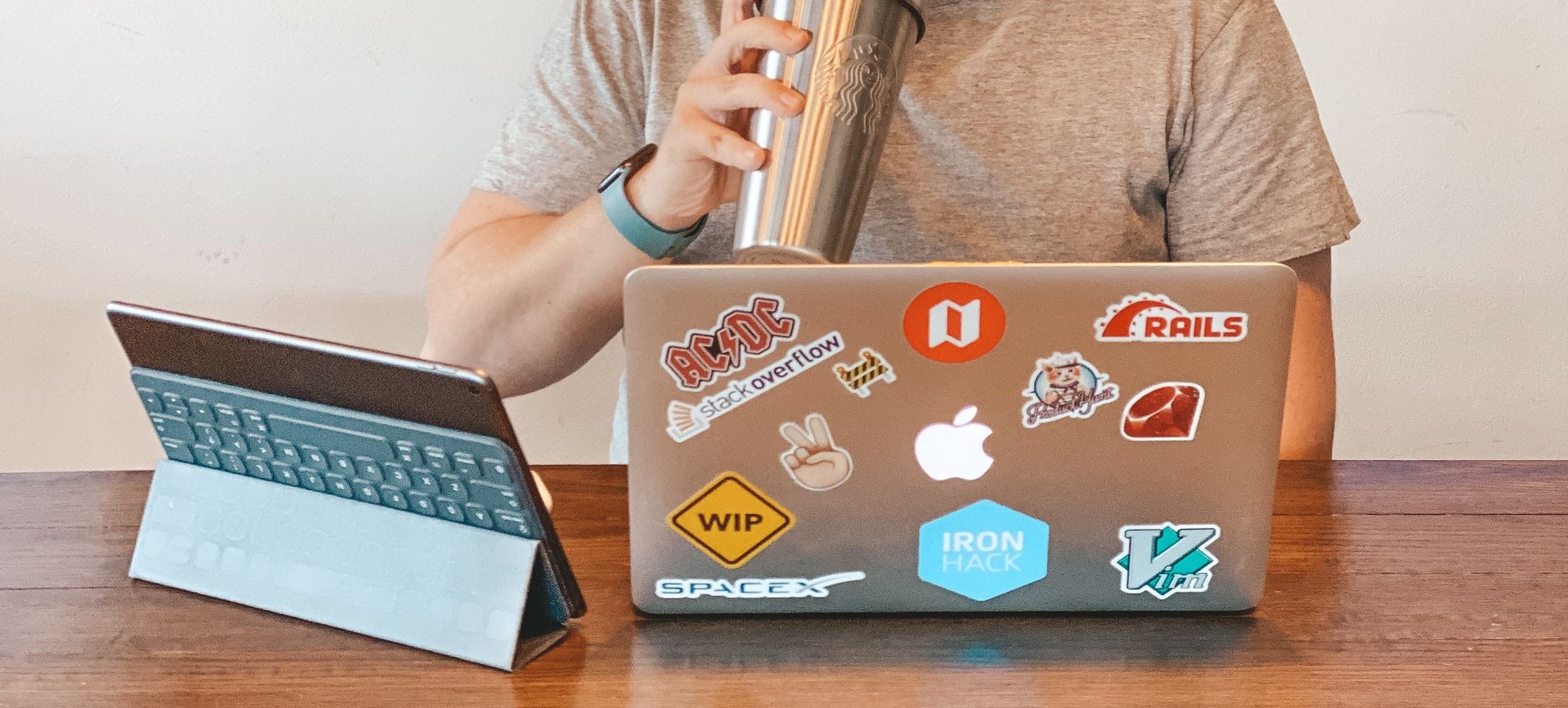I've never been to the U.S., and yet, it's undeniable how much of an effect its culture and values have had on me.
American culture made its impression on me even before I ever had access to the internet. I remember as kid watching Independence Day for the first time, and being confused as to which country I belonged to.
When I was finally old enough to find myself on a map, I was shocked to learn how far I was from Washington D.C., how I wasn't American, and how if I ever wanted to go there, I'd need something called a "visa". Growing up consuming perfectly-dubbed American media will do that to a kid.
Compounding to that, there's the fact that past a certain age I grew up mostly on the internet, and the internet happens to be quite an American phenomenon.

I remember at age 13-15 reading life-advice blogs written by Wall Street bankers, bootstrapping advice from American founders, all this while listening to American music, watching movies made in America, using devices designed in America, by American companies.
Its pull was inescapable to me, and suddenly, I was sucked into a culture that didn't really fit with where I was from, from a country I wasn't even born in, and didn't speak the language from birth. They had exported a whole world-view to me over fiber optics cables. You could say I was Coca-Colonized.
America and "America"
Pretty soon, however, this endearing effect started to wear off. Being terminally online at the time, I had a front row Twitter seat to read all about quantitative easing, the impossible to repay Federal debt, worsening living conditions for low-income Americans, the oncoming culture war, and many more things an early teen should not be worrying about. All this before "doom-scrolling", or even Trump, was a thing.
It helped me, however, to start to split my perception of the U.S. in two: one was a very real and very powerful superpower, albeit one showing signs of fragility, with real world problems, and challenges. That America was the place actual humans lived at and made a living on.
The other America, was... different. It wasn't even fully made of "Americans". It had, however, values and ideals that highly ressembled those shared and cherished in the North American giant.
Things like ingenuity, failing fast, and the hubris that, yes, we can just build the thing and might just be able to change the world were also celebrated in this other "country".
This country had no president, no government, no judiciary. It was fully the wild west. This place was, and is, of course, The Internet.
On The Internet, it didn't matter where you were from, if your passport was powerful or not, which school you went to, or even if you had a lot of money or not.
On here, I was exposed to ideas that would never, ever, had a chance to reach a kid like me, in a random town in Pernambuco, Brazil.
Ideas, values, blueprints, coming from all over the world, and again, lots of it based on American values.
This amazing second-brain, second-culture, supercharged my decision making from early on. I learned to code here. I learned how to use stronger currencies here (having a bank account in a foreign country at age 14 was insane, not gonna lie. I miss the no-KYC years of the internet.). I got my first remote job here. I learned I could be location-independent here.
I didn't know at the time, but the American dream so many would risk it all to physically chase, was now being moved online.
The internet taugh me to judge people first for their ideals and vaulues, second for their track record, and never from where they were born.
Inadvertently, the long consequence of so much American media and culture being consumed as a child and teen, combined with an anarchic-meta space where you had access to an infinite free market of ideas and cultures, was that I started tying my identity and sense of community to something much more abstract, much more global, but also, much more human.
Soon, finding myself in group chats and forums where nationalities were just too many to count or care about, these ideals started finding solid ground.
I found myself cooperating on projects, sharing my greatest fears, gaming with, and getting paid for services rendered over the internet by complete strangers from all over the world.

A consequence of growing up on the internet, for me, was that it freed me from the overwhelming contribution (determinism, maybe?) the place I was born in would have on my life.
A consequence of that was, which culture do I belong to again?
What am I again?
I left Brazil in 2018 to search for my tribe. To be more specific, a multi-cultural, techno-optimist, growth-oritented one.
I wanted to find what I found on the internet, but in real life. I think I've largely succeeded.
I guess it was only natural that, once I found this tribe and community, and realized I wasn't just on a complete pipe dream originating from being terminally online, I'd start to ask myself very real questions about what this ultimately means, especially to my sense of identity.
Patriots proudly fly the flag of their country, celebrate national holidays, and teach the kids about how we are different because we were born "here".
If I don't have that, nor even agree with that, what do I have? What the heck is a Brazilian anyway?
I'll be honest with you. I did not spend much time contemplating this question before adjusting my lifestyle to its obvious consequence: flag theory.
Nation as a service
My view shifted from being overly concerned with my national or regional identity, and instead I became more attached to value-based communities and movements. Indie Hacking. Crypto. Longevity. Psychonauts. Folks in the cult of Jung and Nietzsche.
And with that, my country wasn't really my country anymore. Actually, I felt I was able to see beyond the nation-state psyop for the first time in my life: countries and geographical governments can be bluntly defined as service providers.
Your taxes are really the subscription you pay to live in a place.
This gave me a newfound appreciation for cities and local goverments. Often, they are the ones doing the governance work that affects you directly in very real ways, and yet, we do not usually overly identify with the cities and local goverments whose territory we live in.
The nation-state needs you to believe it is real. It needs you to think it's a good thing they're spending billions of your money in a far away war. It needs you to believe that free speech must be curbed, that certain information is dangerous. It needs you to believe that they're the only ethical conflict mediators. And more than anything, it needs you to believe you're either too dumb or too incompetent to take care of yourself.
And yet, we live in an age where anyone can anonimously share protest on the internet, transact uncensored in crypto, and even print guns at home. Chaotic and potentially dangerous? Absolutely. But beautiful nonetheless.
So here's the relationship model I have with the nation states of the 21st century:
They're very powerful documenting-printing institutions. By playing my cards right, I can get a piece of paper saying I can enter, or even live, in a vast geographical span. They might even issue me a travel document so I can travel as one of their own, just as my birth country has issued me one, unsuspectingly unaware that I have decided to exit its psy-op a while ago.
If I understand their often-conflicting laws and systems correctly, I can use them to my own advantage. I can reduce my tax burden. I can live somewhere that's safe and nice. I can have access to advanced services and economies. I can conduct business and work with more ease and peace of mind.
Do not, however, mistake your idealism for realpolitik. You must not not anger the Leviathan. Blend in, and appear as uninteresting as possible. Just another tax payer. And be specially careful to not anger the Leviathans that can deploy a fast food restaurant to any theater of operations anywhere in under a day.
Granted you don't anger them, and having in mind they are first and foremost service providers, you should be able to walk away from the relationship at any point, if it doesn't serve you anymore. Just like if my cable TV provider is doing a bad job, I'll switch it for a competitor.
Having done that a few times already, I know to my core that it's no big deal. There's no adrenaline rush in packing up all my stuff and flying somewhere else. I know I can unpack and setup my life in a new place without much fuss.
To be even more blunt, even visas and residency permits are mostly a matter of money for majority of nation states in existence today. Many countries are not oblivious to the fact that they need brains and tax-revenue, and will fight to convince you to move your life there.
More importantly, I'll always know that I'll have friends all over the world. I know that humans who share of my values, transmitted and created via fiber optics cables, are not few and far between, but many millions of people, from all backgrounds and walks of life, decentralized across our whole planet. I've met far too many of them to think otherwise.
And you, have you thought about the relationship you have with your nation-state yet?

